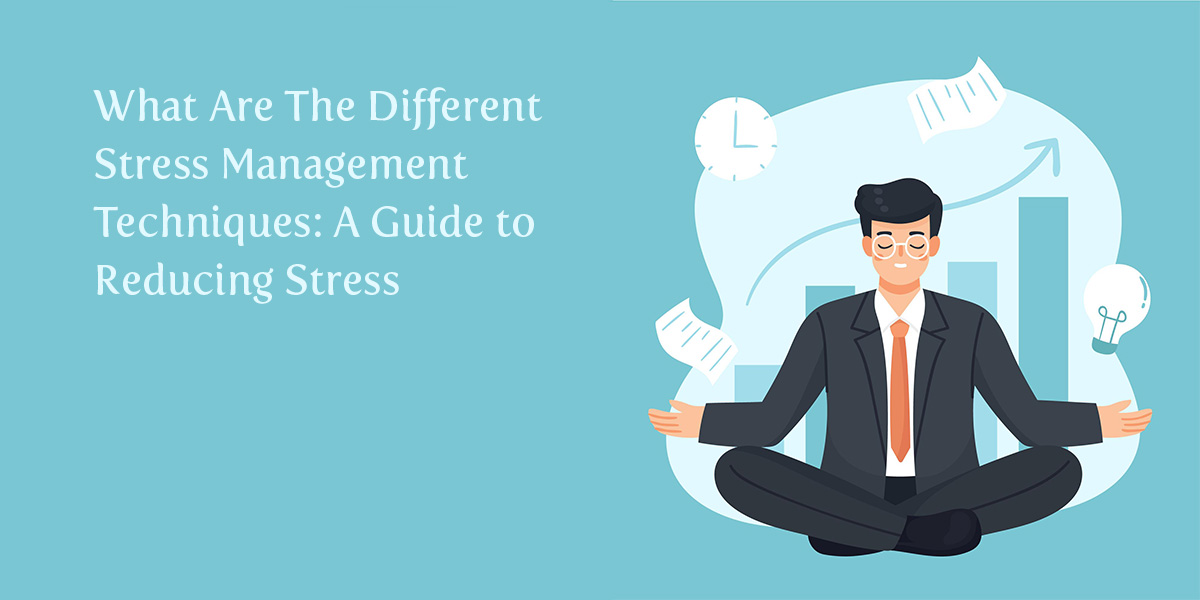Stress Management Techniques Can Change Your Life
In today’s fast-paced and demanding world, stress management techniques have become increasingly important in maintaining overall well-being. These techniques can have a transformative impact on your life, helping you navigate stressors effectively and improve your mental, emotional, and physical health. By learning and implementing these techniques, you can experience a significant positive shift in how you handle stress and enhance your overall quality of life.
Why is Stress Management so Important?
Stress management is crucial for several reasons, as it:
- Promotes Health and Well-being: Effective stress management techniques help reduce the negative impact of stress on your physical and mental health, reducing the risk of stress-related illnesses such as cardiovascular diseases, anxiety disorders, and depression.
- Enhances Resilience: By developing and implementing stress management techniques, you can cultivate resilience, which enables you to bounce back from adversity, cope with challenges, and adapt to changes more effectively.
- Improves Productivity and Performance: Managing stress enables you to maintain focus, concentration, and productivity in your personal and professional life. It allows you to make better decisions, solve problems efficiently, and perform at your best.
- Enhances Relationships: Stress can strain relationships, but effective stress management techniques help you regulate your emotions, communicate effectively, and maintain healthier relationships with others.
- Increases Life Satisfaction: By reducing stress and improving overall well-being, stress management techniques contribute to a greater sense of satisfaction, happiness, and fulfillment in life.
Different Stress Management Techniques:
Stress management techniques encompass various approaches that can be tailored to individual preferences and needs. Here are several categories of stress management techniques:
- Cognitive Techniques: These involve identifying and challenging negative thoughts and beliefs, reframing perspectives, practicing positive self-talk, and cultivating mindfulness and meditation.
- Relaxation Techniques: These techniques focus on inducing physical and mental relaxation, such as deep breathing exercises, progressive muscle relaxation, guided imagery, and aromatherapy.
- Physical Techniques: Engaging in physical activities like exercise, yoga, tai chi, or dancing can help reduce stress, improve mood, and promote overall well-being.
- Emotional Techniques: Emotion-focused techniques include journaling, expressing emotions through art or creative outlets, seeking emotional support from loved ones, or engaging in activities that bring joy and fulfillment.
- Behavioral Techniques: These techniques involve adopting healthy lifestyle habits, such as maintaining a balanced diet, getting sufficient sleep, practicing time management, setting boundaries, and engaging in hobbies or activities that promote relaxation and enjoyment.
- Lifestyle Techniques: Making lifestyle changes, such as managing work-life balance, setting realistic goals, establishing healthy boundaries, and prioritizing self-care, can significantly impact stress levels.
- Mind-Body Techniques: Practices like acupuncture, acupressure, biofeedback, and hypnotherapy integrate the mind and body to promote relaxation, stress reduction, and overall well-being.
- Integrative Approaches: Some individuals may benefit from combining multiple techniques, such as a combination of therapy, medication, and complementary and alternative therapies, depending on their unique needs and circumstances.
When Should You See a Doctor?
While self-help techniques can be effective in managing everyday stress, it is important to seek medical attention if you experience persistent or severe stress symptoms that significantly impact your daily functioning, mental health, or quality of life. A healthcare professional can provide a comprehensive evaluation, offer appropriate guidance, and recommend specialized interventions or therapies when necessary.
The Bottom Line
Stress management techniques offer valuable tools for navigating the challenges of life and maintaining overall well-being. By proactively implementing these techniques, you can effectively manage stress, enhance your resilience, and improve your physical, emotional, and mental health. Remember that it’s essential to find the techniques that work best for you and to seek professional help when needed to ensure optimal stress management.









Post a Comment